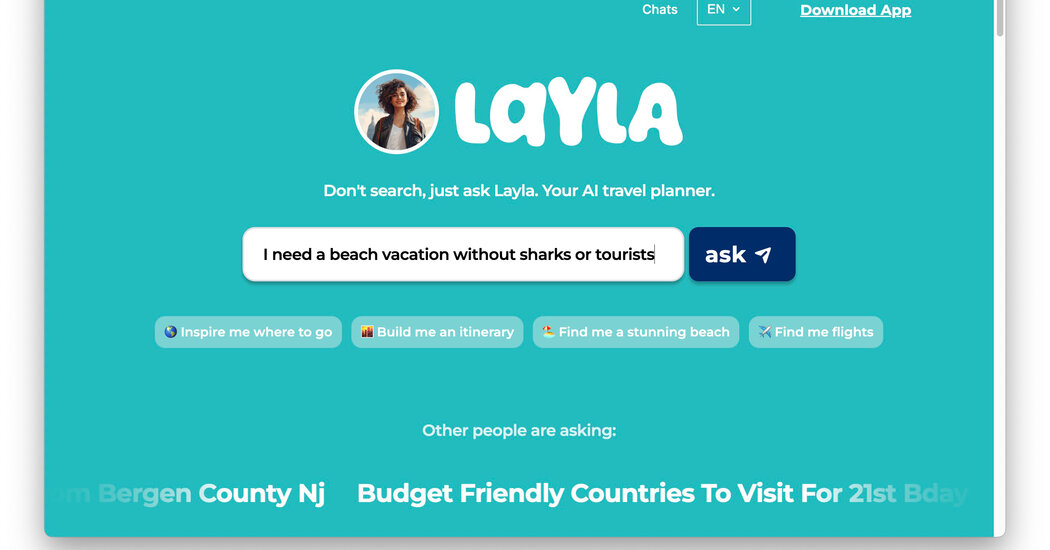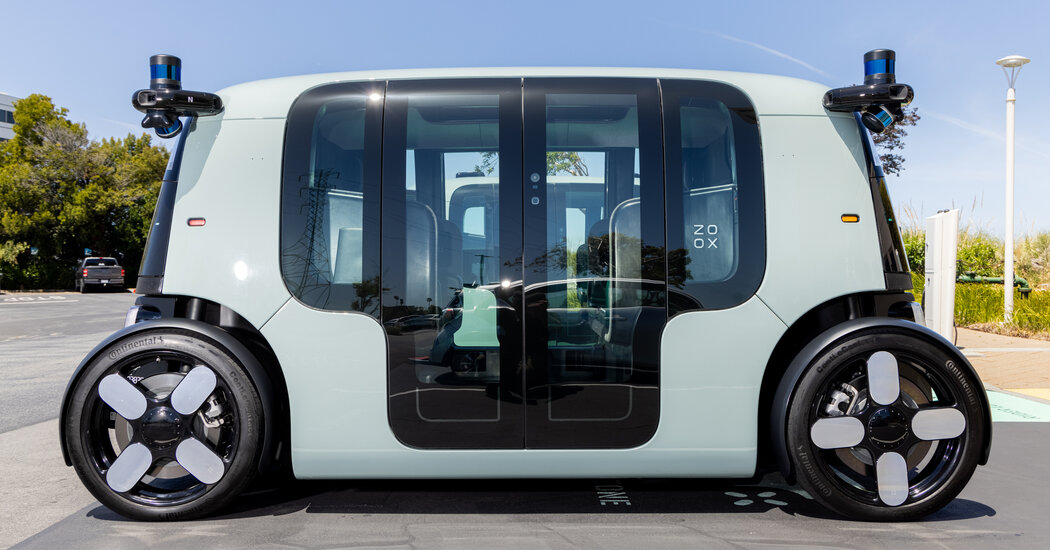The summer travel season starts in just a few weeks, but if you are looking for software that goes beyond simply booking flights and hotels, you’re in luck. Search engines enhanced by artificial intelligence can help with your research and outline full itineraries. Certain older apps have recently been updated to suggest more eco-friendly travel options. And keeping it all organized on your phone is easier than ever. Here’s an overview.
Using an A.I. Travel Agent
General-purpose A.I.-powered search tools and chatbots like Google’s Gemini spin up a list of things to do on your vacation when asked, but A.I. bots that are fine-tuned for travel queries are often more comprehensive. These bots scout destinations, plan itineraries, search for accommodations and flights, map out road trips and do more — grabbing a lot of information at once and saving you all that time-consuming web trawling.
Give the software your specifics — like destination, length of stay, interests — and see what it suggests. Many A.I. helpers are free to use if you sign up for an account, but some charge a subscription fee for premium services; your app store has specifics.
Layla, formerly Roam Around, is one of the free vacation-oriented A.I. helpers you can find online, and it has teamed up with travel sites that include Skyscanner, Get Your Guide and Booking.com. If you prefer land-based car and camper journeys, Roadtrippers (free trial; $60 year) includes real-time traffic and air-quality information along with route planning. And old stalwarts like Tripadvisor and Expedia are now using A.I.-generated vacation builders.
But as others have also noted, while A.I. travel planners have much potential, many are still works in progress and usually display disclaimers admitting so.
A.I. bots have been known to offer generic advice like “enjoy lunch at a local restaurant,” suggest activities that are out of season or too far apart, repeatedly recommend the same restaurant, consistently steer you to their advertisers or point you to locations that have closed. If you ask different bots the same question, you may get nearly identical suggestions, all scraped from the same tourism websites.
Apple’s Maps app also shows mass transit, walking and cycling options for getting around town, along with charge-friendly routes for electric vehicles. However, the default apps on your phone are not the only aids. Third-party software for directions and sustainable travel abound.
For example, Citymapper, which covers most major cities in the United States, Europe and Asia, includes environmental impact statistics on some trips. Its directions often include accessibility options that avoid stairways, along with routes for the fastest, cheapest or easiest way to get where you’re going; Citymapper is free with in-app purchases.
Other apps available for those seeking environmentally minded vacations include Bikemap for community-sourced cycling routes around the world, HappyCow for vegan and vegetarian travelers and Tap Hydration and Water Stations to locate sources for refilling reusable water bottles.
Keeping Organized
If you don’t already have software for consolidating your trip information, your phone’s default apps can help. Electronic boarding passes, hotel reservations and advance tickets can be quickly added to the digital wallet on your phone; a pragmatic paper backup tucked in your bag is insurance. Google and Apple offer to automatically add reservations and events from email and messages to your calendar.
Free services like TripIt (and its phone apps), TripCase (also with Android or iOS apps) and Wanderlog automatically put all your travel information in one place, typically by scanning the information in your confirmation emails. TripIt Pro, a $50-a-year subscription version, adds more features like seat, fare and airline-points trackers, as well as international travel tools and regional risk alerts like those for extreme weather that can affect airline schedules and public safety.
A.I. bots and travel apps will continue to evolve and, hopefully, make vacation planning even easier in the future. Just don’t forget to occasionally put the phone down and enjoy your time off once you get there.







